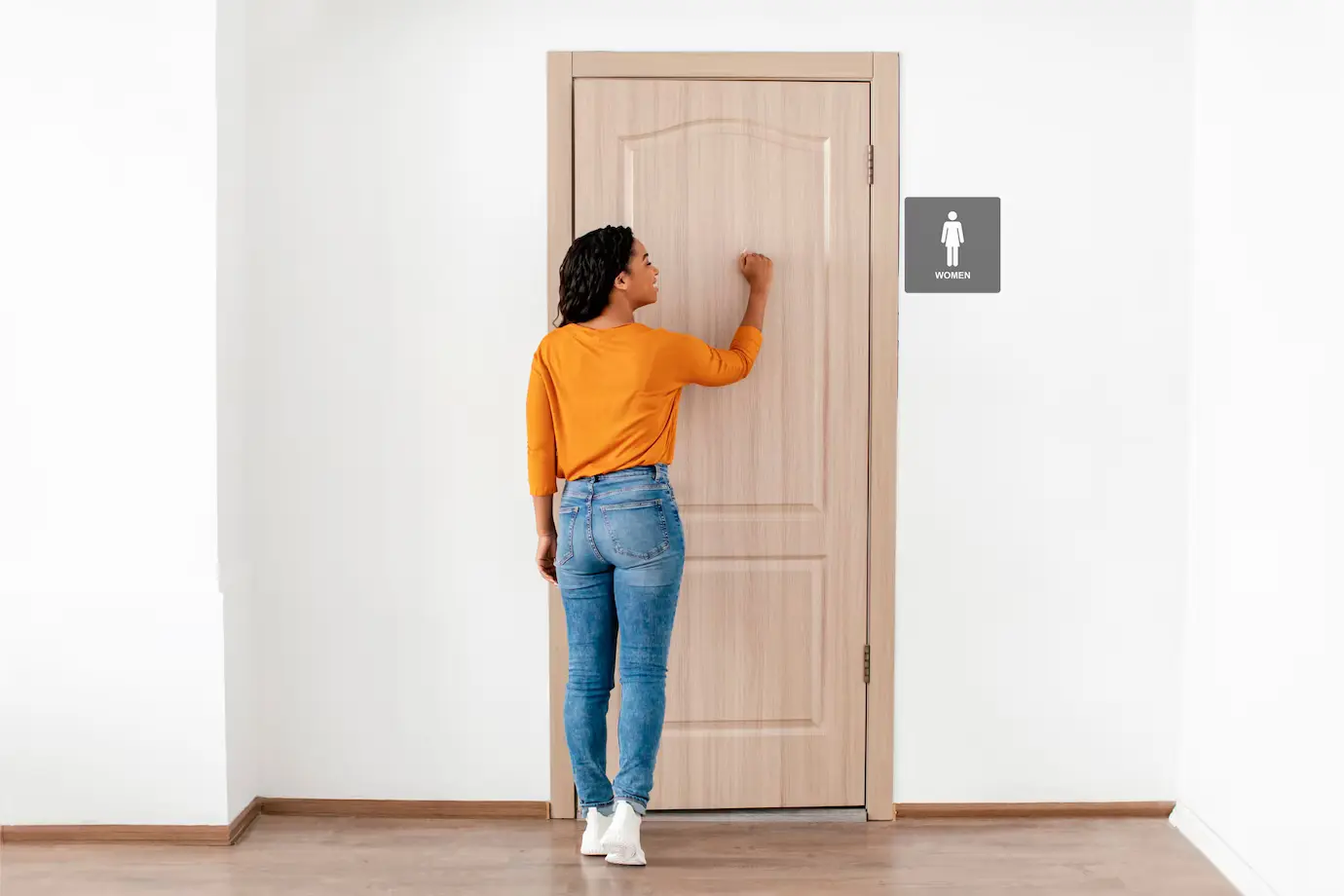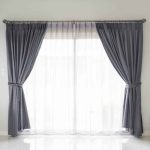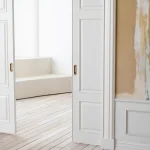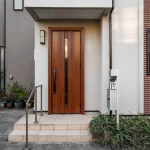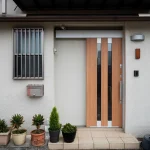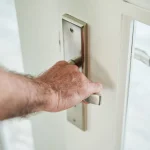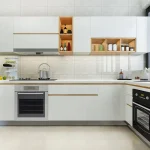Choosing the right door for your home is more than just picking a slab of wood or metal. It’s about balancing functionality, aesthetics, and security to enhance your living space. This guide will walk you through everything you need to know before you make that crucial purchase.
Understanding Door Materials
Wood Doors
Wood doors have been a classic choice for centuries, known for their natural beauty and warmth. They come in various species like oak, mahogany, and pine, each offering unique grain patterns and colors. However, wood doors require regular maintenance to protect them from moisture and pests.
Lisa Peters, a designer from HGTV, emphasizes, “Solid wood doors are beautiful and long-lasting, but they can be expensive. Fiberglass doors are a good alternative as they offer similar aesthetics with better weather resistance.”
Fiberglass Doors
Fiberglass doors are becoming increasingly popular due to their durability and low maintenance. They can mimic the look of wood without the susceptibility to warping or rotting. Additionally, fiberglass doors offer excellent insulation, making them energy-efficient choices for exterior applications.
Steel Doors
For those prioritizing security, steel doors are an excellent option. They are strong, durable, and often come with insulated cores to improve energy efficiency. However, they can be prone to dents and may not offer the same aesthetic appeal as wood or fiberglass doors.
Functionality First
Before you buy a door, consider its primary function. Is it for an entryway, a bedroom, or a closet? The purpose of the door will influence the type of material and design you should choose.
Jessica Barr, an interior designer on Houzz, notes, “Doors play a crucial role in your home’s functionality. Consider the purpose of the door before you buy. For high-traffic areas, solid core doors offer better soundproofing. For entryways, prioritize security and weather resistance.”
Interior vs. Exterior Doors
Interior doors typically don’t need to withstand the elements, so you have more flexibility with materials like hollow core doors, which are lightweight and affordable. For exterior doors, security and insulation are paramount. Look for doors with solid cores and weatherstripping to keep the elements at bay and enhance energy efficiency.
Soundproofing
If you’re looking for peace and quiet, especially for bedrooms or home offices, solid core doors are your best bet. They provide better sound insulation compared to hollow core doors, which can help maintain a serene environment.
Don’t Forget the Details
The details can make or break the overall look and feel of your door. From the hardware to the finish, every element plays a part.
Sarah Stacey, a writer for Architectural Digest, advises, “The hardware you choose for your doors can elevate the entire look and feel of your space. Hinges, doorknobs, and handles come in various finishes and styles. Select hardware that complements the door’s design and your home’s overall aesthetic.”
Hardware
Hinges, doorknobs, and handles come in a variety of finishes, including brass, chrome, and matte black. Choose hardware that complements your door’s style and the rest of your home’s decor. High-quality hardware not only enhances the door’s appearance but also its functionality and longevity.
Finishes
The finish on your door can affect its durability and maintenance. Painted doors offer a wide range of color options and can be easily touched up. Stained doors highlight the natural beauty of the wood grain and provide a timeless look. For a more modern touch, consider doors with glass panels or a sleek, minimalist design.
Think About Installation
Installing a door might seem like a straightforward task, but it can quickly become complex. Proper installation is crucial for the door’s functionality and longevity.
Michael Turner, a contractor at This Old House, recommends, “Replacing or installing a new door can be a complex task. If you’re not a DIY enthusiast, consider hiring a professional installer. They can ensure the door is properly sized, leveled, and functions smoothly.”
DIY vs. Professional Installation
While installing a door yourself can save money, it requires precise measurements and tools. A poorly installed door can lead to issues like drafts, difficulty opening or closing, and decreased security. Professional installers have the expertise to handle these challenges and ensure a seamless fit.
Prioritize Efficiency
Energy efficiency is an important consideration, especially for exterior doors. Proper insulation can reduce energy costs and improve comfort.
James Warner, an Energy Star Program expert, states, “For exterior doors, energy efficiency is a major factor to consider. Look for doors with an insulated core and weatherstripping to minimize air leaks and improve your home’s energy performance.”
Insulation
Doors with insulated cores, such as those made from fiberglass or steel, offer better thermal performance than solid wood doors. Additionally, weather-stripping around the door frame can prevent air leaks and improve energy efficiency.
Climate Considerations
Your local climate should influence your door choice. In colder regions, doors with higher insulation values are essential to keep the heat in and the cold out. In warmer climates, look for doors that reflect heat and have good ventilation options.
Embrace Your Style
Your door is an opportunity to express your personal style and complement your home’s architecture.
Emily Henderson, an interior designer and TV personality, says, “Your doors can be a great way to express your style. From classic wood tones to modern glass panels, there are endless design options available. Choose a door that complements your home’s architectural style and reflects your personal taste.”
Design Options
There are endless design options to choose from, including traditional paneled doors, sleek modern designs, and doors with decorative glass inserts. Consider the overall aesthetic of your home and choose a door that enhances it.
Color and Finish
The color and finish of your door can make a significant impact. A bold, bright color can make a statement, while a natural wood finish offers a classic, timeless look. Don’t be afraid to experiment with different styles and finishes to find the perfect match for your home.
Studies on Door Buying
To make an informed decision, it’s helpful to refer to expert studies and guidelines.
Consumer Reports: Door Buying Guide
Consumer Reports provides detailed information on different door materials, styles, features, and installation considerations. Their comprehensive guide can help you compare options and choose the best door for your needs.
National Institute of Standards and Technology (NIST): Building Envelope Performance
NIST explores various factors that influence building envelope performance, including doors’ role in energy efficiency and air infiltration. This study highlights the importance of choosing energy-efficient doors to enhance your home’s performance.
Department of Energy (DOE): Energy Efficient Doors
The DOE offers resources on selecting energy-efficient exterior doors, including considerations for climate and insulation properties. Their guidelines can help you choose doors that contribute to a more energy-efficient home.
International Code Council (ICC): International Building Code (IBC) for Door Requirements
The IBC sets safety standards for doors, including fire resistance ratings and wind load requirements. Understanding these standards can help you choose doors that meet safety regulations and ensure your home’s security.
Conclusion
Buying a door is a significant investment that affects your home’s aesthetics, security, and energy efficiency. By understanding the different materials, considering functionality, paying attention to details, prioritizing efficiency, and embracing your style, you can make an informed decision that enhances your home’s value and comfort.
Remember, it’s not just about the door itself but also the installation and maintenance that ensure its longevity. Whether you’re looking for a statement piece for your entryway or a functional door for your bedroom, taking the time to choose the right door will pay off in the long run.
With insights from industry experts and comprehensive studies, you’re now equipped with the knowledge to make the best choice for your home. Happy door shopping!

